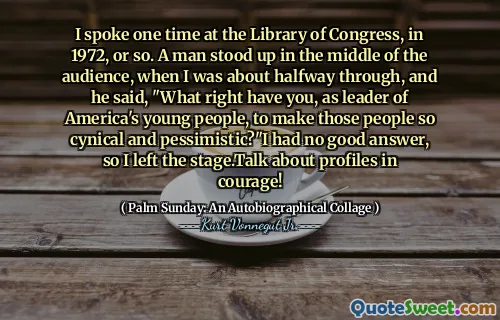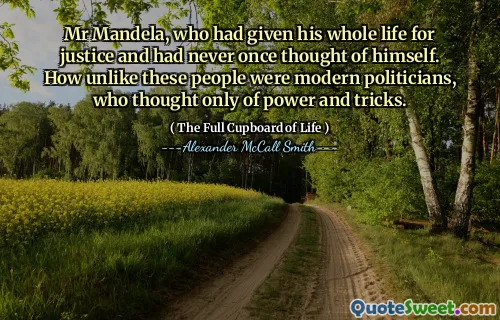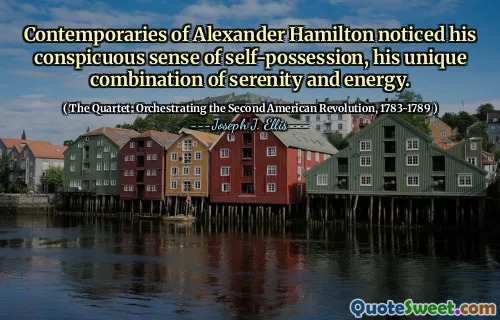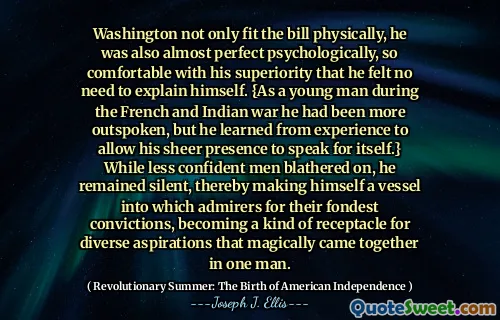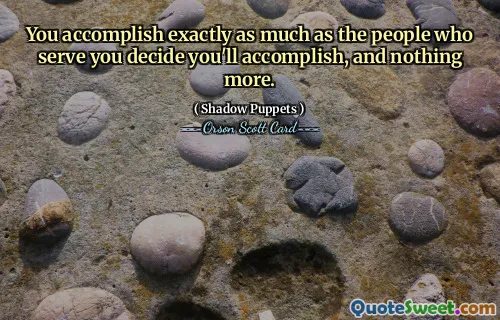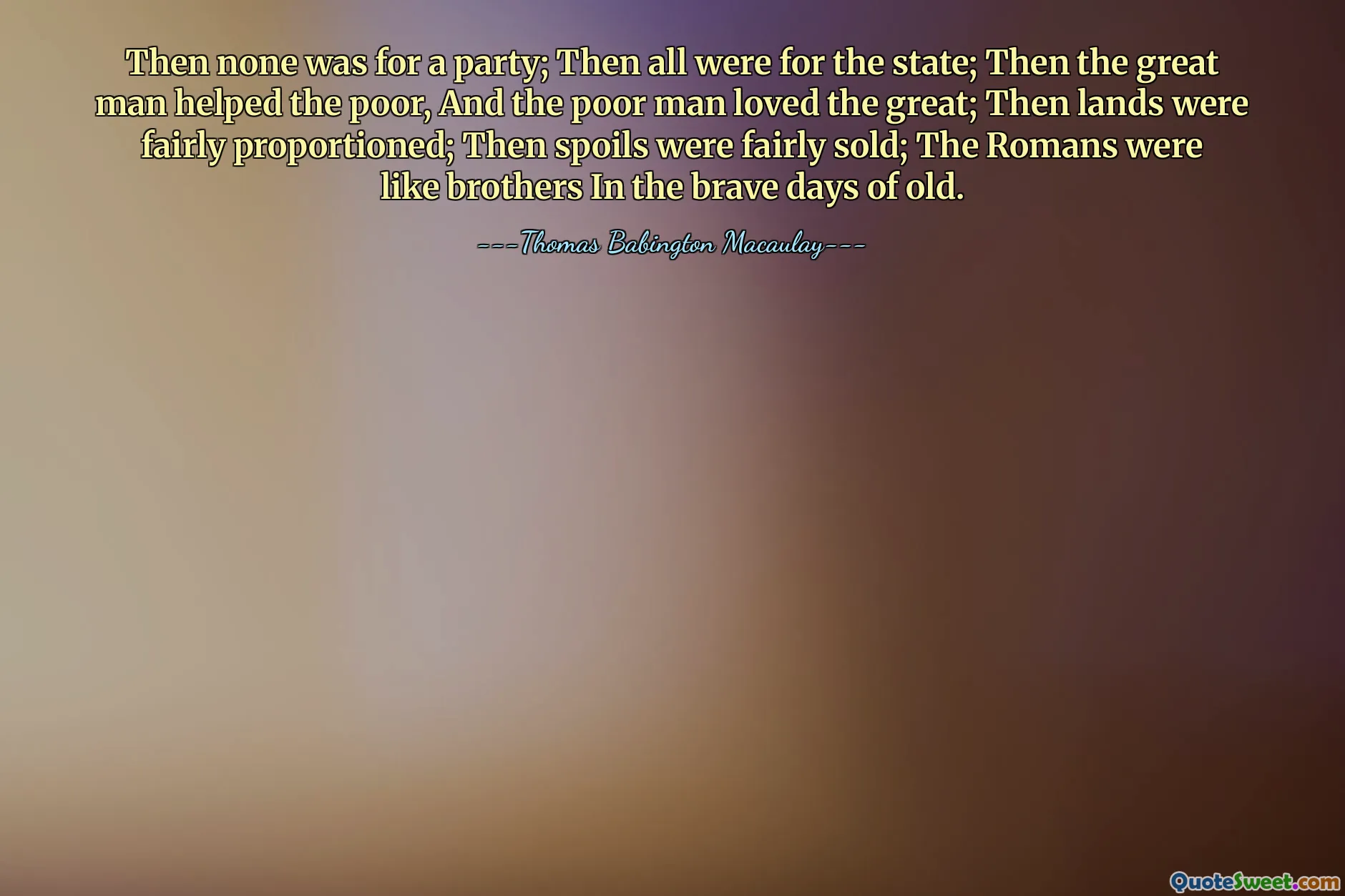
Then none was for a party; Then all were for the state; Then the great man helped the poor, And the poor man loved the great; Then lands were fairly proportioned; Then spoils were fairly sold; The Romans were like brothers In the brave days of old.
This quote reflects an idealized vision of societal unity and harmony, reminiscent of a bygone era where collective welfare overshadowed individual or factional interests. The notion that "none was for a party; then all were for the state" evokes a powerful call to prioritize communal good over personal or political gain. It's a poignant reminder of how polarized modern societies often become, highlighting the value of common purpose and shared responsibility.
The lines "the great man helped the poor, And the poor man loved the great" illustrate a reciprocal relationship founded on genuine care and respect rather than exploitation or resentment. It challenges contemporary social dynamics, suggesting that when leaders serve their people selflessly, they earn the heartfelt admiration of those they serve. This mutual affection is a cornerstone of healthy societal bonds.
Further, the emphasis on fairness, with "lands fairly proportioned" and "spoils fairly sold," underscores the importance of justice and equity in sustaining social cohesion. Unequal distribution of resources leads to division and unrest; hence, the quote champions fairness as a foundation for peace.
Finally, the concluding line, "The Romans were like brothers in the brave days of old," romanticizes a past where loyalty and fraternity prevailed. While history shows complexity in Roman society, this nostalgic portrayal invites reflection on how modern communities might reclaim a similar spirit of solidarity. Taken together, these lines serve as both a lament and an aspiration, encouraging us to seek united, just, and compassionate societies.






